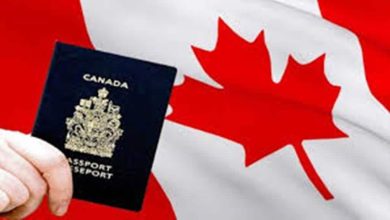Study In Canada: Tuition Fees, Cost Of Living Etc
About 21 of the top 500 universities worldwide and 32 of the top 1,000 are located in Canada. There were 572,415 people who have study permits in Canada in 2018.
It has some of the top academic institutions and research facilities in the globe, as well as some of the greatest study programs.
Canada should be at the top of your list if studying abroad is something you plan to do. For a step-by-step explanation of how to apply for a Canada Study Permit, continue reading.
Step 1: Understand the Requirements
Understanding the various prerequisites for schools and the courses they provide is necessary to submit a successful application to a Canadian educational institution.
Candidates must also carefully examine the laws and ordinances that govern the application for a study permit.
Only accredited institutions and approved study durations will have any real value.
Planning for your Canadian study permit should ideally begin at least a year in advance. An updated passport, proficiency in either English or French, proof of passing required language exams with minimum grades or bands, and evidence that you can afford to pay for both your studies and the cost of living in the country are all prerequisites for admission to all universities and institutions.
Naturally, requirements may differ between provinces, therefore this process must be carried out meticulously and methodically.
Step 2: Choose your Course and Institution
Finding out if a facility is a Designated Learning Institution is the first step in selecting one. Foreign students can only be admitted via DLIs.
To apply to study in Canada, you must complete a particular main course. The academic system in Canada allows for course change, but it is best to weigh your alternatives in advance and select a major in which you have genuine interest.
Read also: Cheapest Universities In Canada
Step 3: Take the Language Proficiency Test
Every international student who want to study in Canada must demonstrate their fluency in either English or French. The preferred English language test is IELTS, while some colleges will also accept results from the TOEFL or Cambridge English: Advanced exams.
You can choose from the DALF, DELF, or TCF exams for French, though the TEF test is the most popular option.
Select the exam, pay the cost, and reserve your dates far in advance. Of course, you’ll need to improve your language abilities if you want your application to be accepted.
Step 4: Apply to Universities
It’s important to get in touch with the universities on your short list, request their application packets, and submit them well in advance. A dozen universities to choose from can be favorable, but you must take into account the application fee, which ranges from $100 to $250.
Don’t just apply everywhere. Compare your choices, decide on your preferred program and university, and then pick one or two backup possibilities.
Be cautious when completing the application form, and be sure to include correct facts supported by documentation. Once you’ve finished, you’ll have to endure the agonizing wait for your acceptance. The university will give you an acceptance letter when you indicate your interest; this document is crucial for the next requirements.
Step 5: Apply for a Study Permit
It’s time to submit your application for a Canada Study Permit now that you have a school ready to accept you. You have two options for applying: online or at a nearby visa application center. The acceptance letter you obtained in the previous phase, your passport, and documentary evidence that you have the money to fund your studies in Canada must all be included with your application.
You will also receive a “Certificat d’acceptation du Québec” along with the acceptance letter if you apply to a school in the province of Quebec (CAQ). As part of your application for a study permit, be sure to provide this document.
Read also: How To Apply For Canadian Visa
Step 6: Travel Time
The immigration officer will make a decision about your study permit application after the application has been processed and, if necessary, after conducting an interview. If approved, you can now begin making travel arrangements for Canada.
Your license will have a start date, which is the day it officially becomes valid. Remember that prior to this day, you won’t be able to enter Canada. Travel as you had planned.
Step 7: Study Time
Before permitting you to enter Canada, the immigration officer will check your permission and other documentation at the port of entry. The immigration process is now complete, and you can concentrate on starting your journey as an international student in Canada.
Contents
Cost Of Study and Living In Canada
Cost Of Studying In Canada
Canada is a highly affordable place to study when compared to many other nations. For tuition, you’ll probably need between $20,000 and $30,000 each year. This range is simply an average and will change depending on the school and program you are enrolled in. Depending on your region and personal needs, the price of accommodation, food, and other living expenditures may vary, but C$15,000 per year is a common estimate.
Tuition
The cost of tuition varies between regions and programs for overseas students. The weighted average tuition costs for full-time international students, broken down by field of study, are shown in the table below (in Canadian dollars).
2019-20 International Tuition Fees by Field of Study In Canada
| Field of study grouping |
Undergraduate |
Graduate |
| Education |
$20,875 |
$15,764 |
| Visual and performing arts, and communications technologies |
$25,127 |
$14,737 |
| Humanities |
$28,676 |
$13,667 |
| Social and behavioural sciences |
$27,647 |
$15,032 |
| Law, legal professions and studies |
$33,192 |
$17,237 |
| Business management and public administration |
$26,680 |
$24,693 |
| Executive MBA |
Not available |
$66,665 |
| Regular MBA |
Not available |
$38,950 |
| Physical and life sciences and technologies | $31,536 | $15,421 |
| Mathematics, computer and information sciences | $33,012 | $16,647 |
| Engineering |
$33,703 |
$19,301 |
| Architecture |
$26,457 |
$23,992 |
| Agriculture, natural resources and conservation |
$26,208 |
$14,452 |
| Dentistry |
$56,621 |
$22,472 |
| Medicine |
$32,450 |
Not available |
| Nursing |
$21,922 |
$16,168 |
| Optometry |
Not available |
$14,014 |
| Pharmacy |
$40,960 |
$12,876 |
| Veterinary medicine |
$63,323 |
$10,099 |
| Other health, parks, recreation and fitness |
$24,626 |
$18,551 |
| Personal, protective and transportation services |
$20,332 |
Not available |
*weighted average tuition fees by field of study in Canadian dollars.
Top 5 Cheapest Universities In Canada
The international application procedure at Brandon University is open to prospective overseas students. According to Brandon University, it has a long and successful history working with overseas students. It also boasts study materials and one-on-one interactions with professors that aren’t offered at bigger campuses.
Tuition fees: $7,203 per year
2. Universite’ De Saint-Borniface
International students at Saint-Boniface might anticipate being able to speak in French because it is a French university. A specific level of English ability is frequently required for several services.
Tuition fees: $7,500 per year
Guelph University offers specialist help to international students with their visa applications, English language instruction, and housing needs, as well as access to an advisor for international students.
Tuition fees: $9,700 per year
4. Canadian Mennonite University
Due to the wide range of perspectives and experiences that international students can contribute, CMU welcomes and encourages their application. Over 19 majors are available to international students for their bachelor’s degrees.
Tuition fees: $10,000 per year
5. Memorial University of Newfoundland
At Memorial University, international students are cordially welcomed and encouraged. Among the university’s distinctive offerings for international students are student advising, an internationalization office, and international student groups.
Tuition fees: $11,460 per year
Housing
Most colleges and universities have housing options for students, some of which are designed expressly for international students. Acceptance to a Canadian university does not, however, guarantee that you will be given a residence hall room. For on-campus housing, students must submit a separate application. Prices vary by institution and are based on your preferences, such as whether you want a private room or a meal plan.
Some international students opt to rent an apartment off-campus. In Canada, the average rent for a two-bedroom apartment is $1,577 per month*, while actual costs will vary by location or neighborhood and kind of residence. As a renter, you can also have extra monthly fees for renter’s insurance, personal bills, and utilities like power, home phone, Internet, and cable television. Some students rent rooms in private homes, often also paying for use of the kitchen, or they share flats or full homes to lower their living costs.
Through their housing office or student services, most institutions may aid with finding housing, both on and off campus, and provide information.
Transportation
You might be able to ride your bike or walk to campus, depending on where you live. Many students, especially those who attend schools in major cities, travel by bus, subway, commuter train, or ferry. One-way prices for public transportation are normally under $1, and monthly passes cost between $80 and $150, though many transit companies also offer student discounts.
Health insurance
Health insurance is a requirement for all overseas students studying in Canada, and the range of medical coverage varies from province to province. International students are covered by the provincial health care programs of Alberta, British Columbia, New Brunswick, Newfoundland and Labrador, and Saskatchewan, although the extent of your coverage typically depends on how long you will be studying there.
What Happens After Your Studies In Canada?
The federal government of Canada desires foreign graduates as ideal candidates for new permanent citizens.
They are youthful, culturally aware, multilingual, have Canadian credentials, and frequently have professional experience.
Canada’s Post-Graduation Work Permit enables graduates to start their professions here after graduation.
International students now have an easier time transitioning to permanent residence thanks to recent modifications to the Express Entry selection process.
A number of provincial immigration programs are also targeted specifically at foreign students.
Watch How International Students Can Become Canada Residents
Conclusion
This brings us to the end of this article. You now know steps involved in studying in Canada, tuition fees, cost of living etc. To study in Canada you will have to spend on the average, Cad$12,000 to Cad$25,000 per year depending on the school and program. Cost of living should be around Cad$800 to Cad$1,200 per month depending on your spending habits. If you found this article helpful, please do well to share by using the sharing buttons below so others can also learn!








